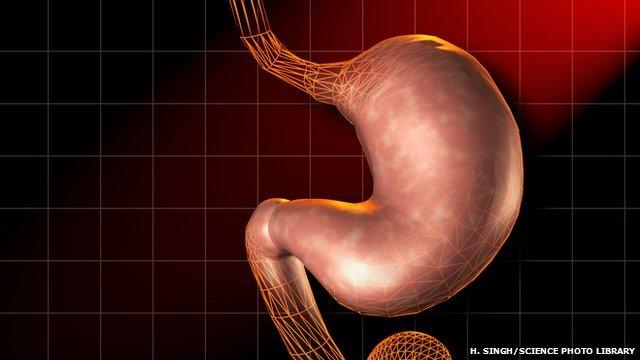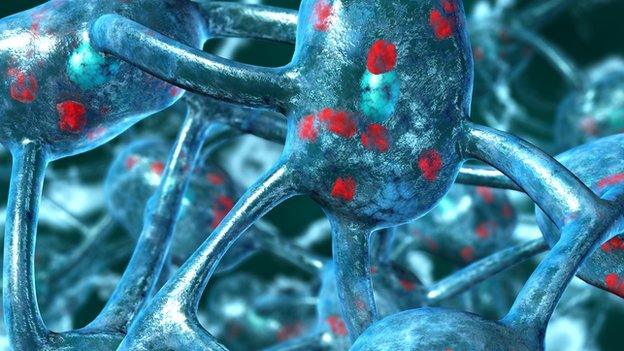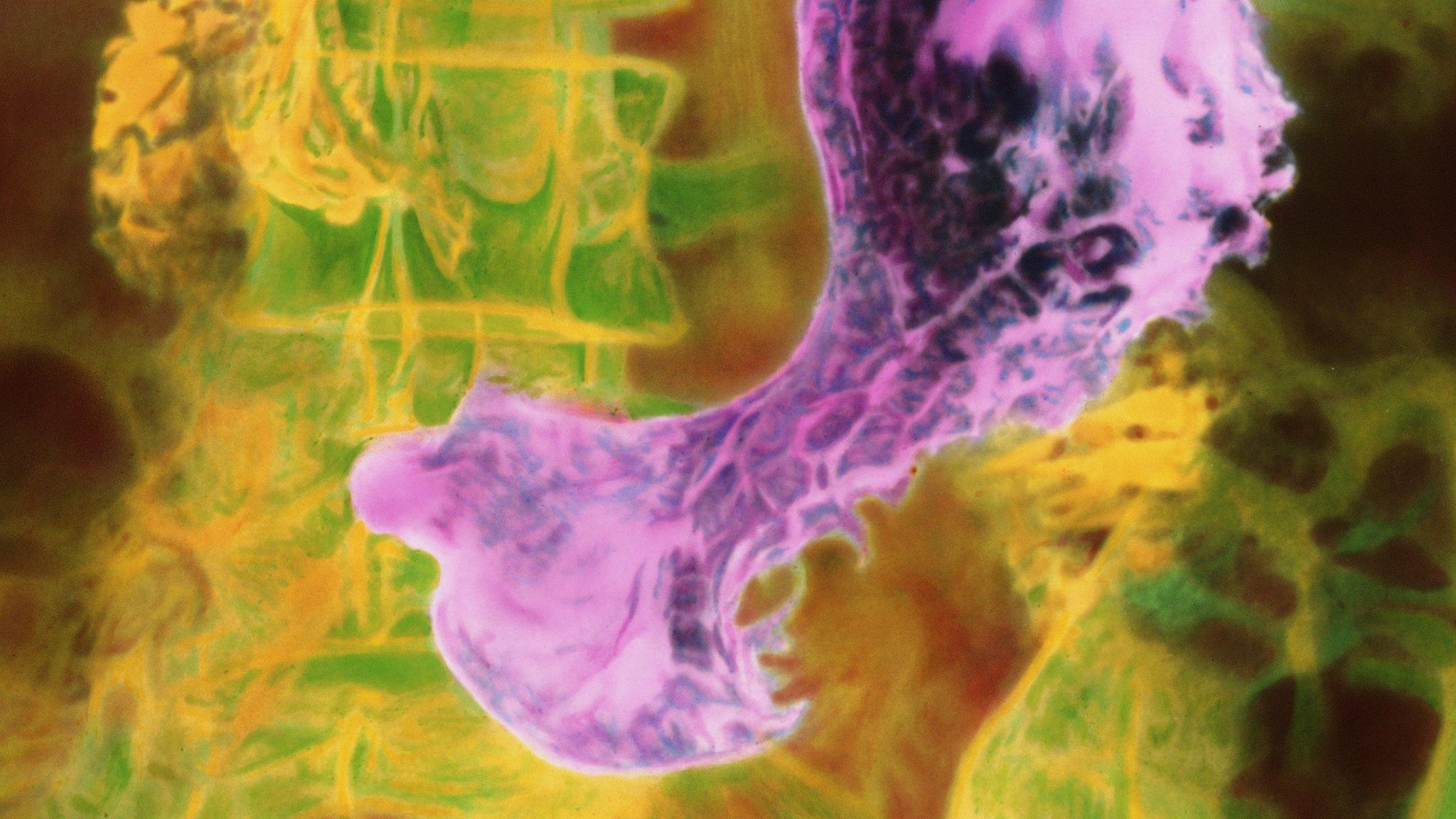Breath test 'could give clues to stomach cancer risk'
- Published

A simple breath test could help predict whether people with gut problems are at high risk of developing stomach cancer, an early study shows.
It detects chemical compounds in people's breath, in an attempt to distinguish unique "breath prints" in those with risky pre-cancerous changes.
Experts say if proven in large trials, it could spot patients on the brink of cancer so they can be treated earlier.
But more work is needed to validate the test, which appears in the journal Gut, external.
'Sniffing signals'
Stomach cancers affect about 7,300 people each year in the UK.
But in most Western countries it is diagnosed late when the chance of survival is poor. This is partly because symptoms - such as indigestion and pain - can be mistaken for other diseases.
Scientists believe earlier detection may help improve the prognosis.
The new "nanoarray" breath test builds on earlier work from researchers in Israel, Latvia and China.
It relies on the idea that people with cancer may have unique breath signatures - containing minute chemical compounds that are not found in the breath of people free from the illness.
Researchers studied breath samples from 145 patients. Around 30 of these were already known to have stomach cancer.
The rest had been referred for investigations because of concerning symptoms. They did not have full-blown cancer - but some had worrying changes that doctors call "pre-cancerous" that could develop into malignancies.
Scientists tried out the test on a number of different scenarios.
It was fairly good at distinguishing cancerous samples from non-cancerous ones.
And it showed some promise at identifying worrying pre-cancerous changes that were at high risk of developing into the disease.
But it was not accurate in every case - some patients were misdiagnosed as being at high risk.
Scientists say more work is needed before it is ready to use in clinics.
Dr Emma Smith of Cancer Research UK, said: "Diagnosing cancer in its early stages offers patients the best chance of successful treatment, so research like this has potential to help save lives.
"But we would need to be sure the test is sensitive and accurate enough to be used more widely."
Research involving thousands of European patients is now under way.
- Published11 February 2015

- Published6 March 2013
